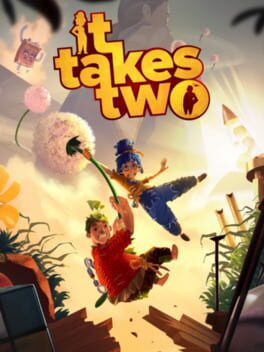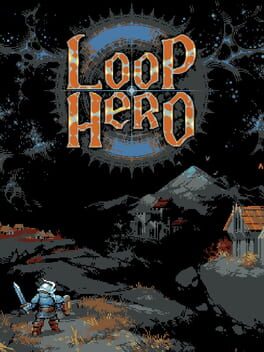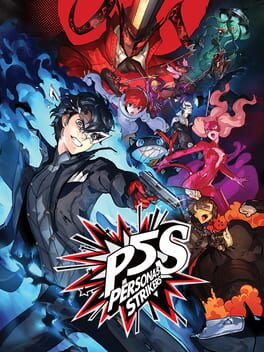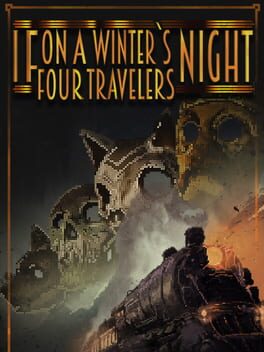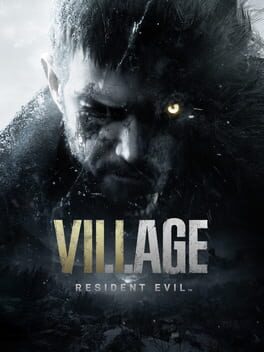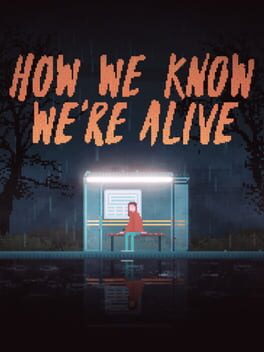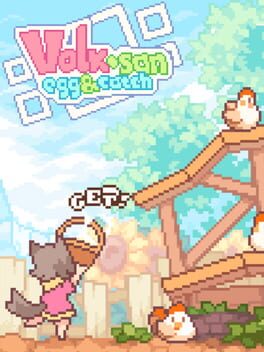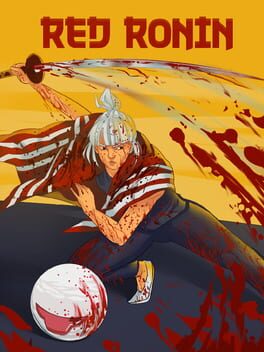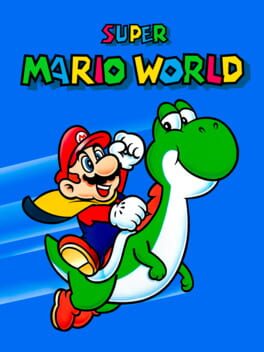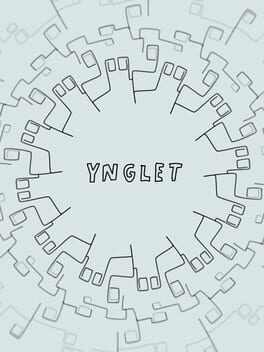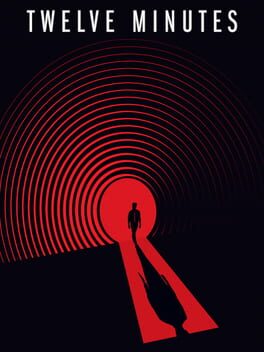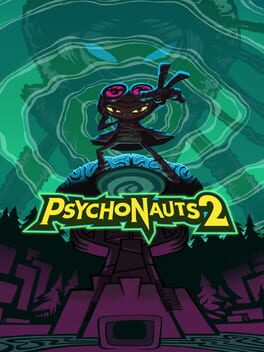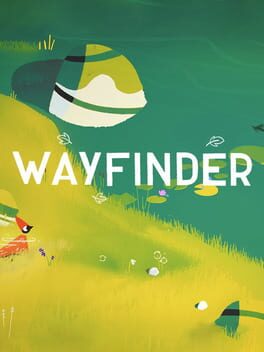2021
We often praise works on their ability to tie all of its ideias together smoothly, in games this usually comes by creating systems that feed into each other and evolve without contradicting the intended message. And although It Takes Two never loses sight of its main themes, it wastes no time with pretensions of finesse. Much like its passionate game director's public persona, the game never holds back and wholeheartedly commits to every creative impulse. Josef Fares wants to eat everybody's lunch, from Nintendo's brand of colorful worlds to Sony's prestige games and everything in between.
It is immensely entertaining to discover and explore new worlds and play with completely new abilities at every level, even if that means a decrease in overall complexity. The stages are always aesthetically different — mostly somewhat whimsical in tone, but you sporadically come across some darker imagery that makes it feel reminiscent of N64 era platformers trying to go where they know Nintendo never could; in this case being a clear, and successful, attempt of getting reactions from the players, turning the moment into something funny instead of edgy — and great to move around and find the little "secret" interactions they brought back from A Way Out (the best part of that game). Most of the mechanics show a surprising amount of substance, escalating nicely throughout the level and often resulting in pretty cool bosses, while never feeling janky.
Narratively it is rather familiar and maybe too naive, with an ending that falls a little flat by putting all the emotional weight on sides of the characters that were not initially introduced as important parts of their characterization. But the game does have its fair share of affecting moments, all of which are elevated by the excellent animation work shown on the toy models, even if it’s a little less flattering on the humans ones.
So, I guess I won't be taking those thousand bucks from you this time, Josef.
It is immensely entertaining to discover and explore new worlds and play with completely new abilities at every level, even if that means a decrease in overall complexity. The stages are always aesthetically different — mostly somewhat whimsical in tone, but you sporadically come across some darker imagery that makes it feel reminiscent of N64 era platformers trying to go where they know Nintendo never could; in this case being a clear, and successful, attempt of getting reactions from the players, turning the moment into something funny instead of edgy — and great to move around and find the little "secret" interactions they brought back from A Way Out (the best part of that game). Most of the mechanics show a surprising amount of substance, escalating nicely throughout the level and often resulting in pretty cool bosses, while never feeling janky.
Narratively it is rather familiar and maybe too naive, with an ending that falls a little flat by putting all the emotional weight on sides of the characters that were not initially introduced as important parts of their characterization. But the game does have its fair share of affecting moments, all of which are elevated by the excellent animation work shown on the toy models, even if it’s a little less flattering on the humans ones.
So, I guess I won't be taking those thousand bucks from you this time, Josef.
2021
Ah yes, it is I, the roguelike hater. Who somehow found himself playing yet another roguelike.
To be honest I haven't been playing this for some time now, but was deluding myself into thinking that I was gonna come back to it. The thing is, I still have no patience or interest in the work you have to put on to master a game, which is the end goal of this genre, but I can't deny the inventiveness at play here. Unlike something like Hades, that is perfectly round but at its core very familiar, this specific combination of ideas turned into something truly authentic, and I'm fascinated by it even though it's really not for me.
To be honest I haven't been playing this for some time now, but was deluding myself into thinking that I was gonna come back to it. The thing is, I still have no patience or interest in the work you have to put on to master a game, which is the end goal of this genre, but I can't deny the inventiveness at play here. Unlike something like Hades, that is perfectly round but at its core very familiar, this specific combination of ideas turned into something truly authentic, and I'm fascinated by it even though it's really not for me.
2020
The final form of the musou based on existing franchises, in which their always escalating efforts in translating mechanics from other series to the this genre straight up reached the point of simulating an entire game.
This genuine sequel to Persona 5 does not exactly retain all of the systemic level interactions from the RPG, but always tries to reproduce its intent, mostly in a more scripted way, while the presentation does the rest of heavy lifting. The most palpable differences are in the fights, where they hid all the musou bits, but even in this less graceful aproach to combat the game cleverly captures the feel and distinct motions of Persona battles.
All of that to serve the bigger purpose of giving you more time with these lovely, lovely characters. To have many group meals, cheerfully play on the beach, travel across the country in a cozy van and confront how in the interconnected age our fear of living unfulfilled lives can lead to outsourcing our happiness to apparently successful figures that are just as broken as any of us and wield that validation as an unhealthy shield against their own traumas. Just as freinds do.
This genuine sequel to Persona 5 does not exactly retain all of the systemic level interactions from the RPG, but always tries to reproduce its intent, mostly in a more scripted way, while the presentation does the rest of heavy lifting. The most palpable differences are in the fights, where they hid all the musou bits, but even in this less graceful aproach to combat the game cleverly captures the feel and distinct motions of Persona battles.
All of that to serve the bigger purpose of giving you more time with these lovely, lovely characters. To have many group meals, cheerfully play on the beach, travel across the country in a cozy van and confront how in the interconnected age our fear of living unfulfilled lives can lead to outsourcing our happiness to apparently successful figures that are just as broken as any of us and wield that validation as an unhealthy shield against their own traumas. Just as freinds do.
A brief point-and-click adventure simplified to be more intuitive while maintaining that classic look and feel with some charming pixel art and animation/effects (I particularly love the crouch-down-wearing-a-dress motion in the second act that has a fluidity and roundness to it that feels unnatural for a cluster of a few tiny squares).
From what I know of Calvino's book that the title is referencing (that I have yet to read), the game seems structured somewhat similarly, but the stories presented are grim tales in which societal injustices lead to great personal ruin, taking that idea of a novel about the pleasure of reading novels and twisting it to point at the allure of tragic narratives and its melancholic function as an empathy vehicle.
From what I know of Calvino's book that the title is referencing (that I have yet to read), the game seems structured somewhat similarly, but the stories presented are grim tales in which societal injustices lead to great personal ruin, taking that idea of a novel about the pleasure of reading novels and twisting it to point at the allure of tragic narratives and its melancholic function as an empathy vehicle.
2021
2021
1990
2021
Great use of platformer design applied to a floaty movement set and free form environment, creating a different but just as satisfying type of challenge that is more focused on precision than dexterity.
It also might be the most gorgeous game I've played this year. The levels and world map are apparently inspired by Copenhagen, but it looks as if the city had been translated into a microscopic space, existing in this surreal, colorful and astir state, flowing in an endless white background.
It also might be the most gorgeous game I've played this year. The levels and world map are apparently inspired by Copenhagen, but it looks as if the city had been translated into a microscopic space, existing in this surreal, colorful and astir state, flowing in an endless white background.
2021
Despite Luis Antonio's outspoken desire to push the medium forward, he wasn't able to conceive of a game that would give form to deeper meaning, instead making a story dominated by it's game mechanics — which resulted in uninspired puzzle box storytelling and shock value —, while the cinematic framing actively crippled the satisfaction of play by adding too much poorly conceived friction in the player's interactions with the game.
(also, there's a bit where the protagonist looks at a window while it's raining and says "heavy rain" and you can't convince me the director is not your average david cage enjoyer)
(also, there's a bit where the protagonist looks at a window while it's raining and says "heavy rain" and you can't convince me the director is not your average david cage enjoyer)
2021
2021
2020
